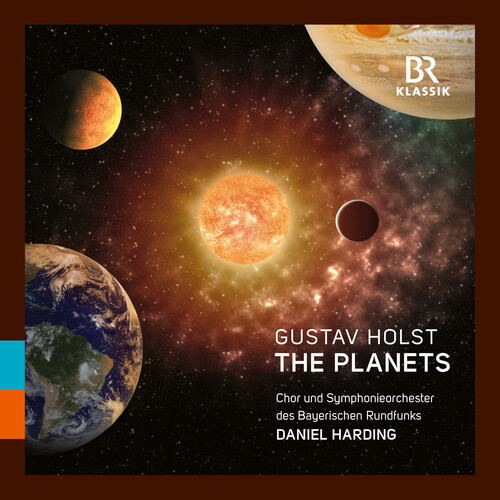Show results for
Deals
- 4K Ultra HD Sale
- Action Sale
- Alternative Rock Sale
- Anime sale
- Award Winners Sale
- Bear Family Sale
- Blu ray Sale
- Blues on Sale
- British Sale
- Classical Music Sale
- Comedy Music Sale
- Comedy Sale
- Country Sale
- Criterion Sale
- Electronic Music sale
- Fantasy Film and TV
- Folk Music Sale
- Hard Rock and Metal Sale
- Horror Sci fi Sale
- Jazz Sale
- Kids and Family Music sale
- Kids and Family Sale
- Metal Sale
- Music Video Sale
- Musicals on Sale
- Mystery Sale
- Naxos Label Sale
- Olive Films on Sale
- Page to Screen Sale
- Paramount Sale
- Pop and Power Pop
- Rap and Hip Hop Sale
- Reggae Sale
- Rock and Pop Sale
- Rock Legends
- Soul Music Sale
- TV Sale
- TV Sale
- Vinyl on Sale
- War Films and Westerns on Sale

Die Planeten - The Planets; Suite fur Orchester und Frauenchor, Op. 32
- Format: CD
- Release Date: 4/7/2023

Die Planeten - The Planets; Suite fur Orchester und Frauenchor, Op. 32
- Format: CD
- Release Date: 4/7/2023
- Composers: Gustav Holst
- Label: BR Klassiks
- UPC: 4035719002089
- Item #: 2551064X
- Genre: Classical, Classical
- Release Date: 4/7/2023

Product Notes
Seven musical character images - each one immensely sensual and expressive, and standing on it's own like a monument. The British composer Gustav Holst, fascinated by (esoteric) astrology, chose the planets of our solar system and the characteristics attributed to them as the basis for what he referred to as musical "mood pictures" or "embodiments". Ultimately, the seven movements of his orchestral suite "The Planets", op. 32, composed between 1914 and 1916, can also be understood as general explorations of human traits. The work had not been performed by the Bavarian Radio Symphony Orchestra for almost three decades when, on February 25, 2022, the British conductor Daniel Harding brought it back to Munich's concert audience in the Herkulessaal of the Residenz, and with great success. During a trip to Mallorca in the summer of 1913, Holst's friend Clifford Bax introduced him to astrology for the first time and the composer immediately began to draw up horoscopes for himself and his acquaintances. The extent to which he actually believed in the influence of celestial bodies on personality formation played only a subordinate role here; it was the notion of a holistic system that could encompass both man and the world that fascinated him the most. His interest in astrology also offered him a welcome break from the monotony of his life as a teacher - at St. Paul's School for Girls and at Morley College, where he taught working-class adults. A first (private) performance of the orchestral suite took place on September 29, 1918 at the Queen's Hall in London, with Adrian Boult conducting. Public performances of individual movements followed. A few months before the first public performance of the complete work, presented by Albert Coates and the London Symphony Orchestra on November 15, 1920, Holst revealed it's cosmic subject. Before then, only the initiated knew what lay behind the rather cryptic movement designations. At the premiere it was above all "Mars, the Bringer of War" that struck a chord with a nation traumatised by World War One. Remarkably, Holst had already written this first movement of his suite in the summer of 1914, when the countries of Europe were still merely engaged in patriotic sabre-rattling. His clear-sighted portrait of the destructive machinery of war - in the relentlessly repeated 5/4 march rhythm - runs counter to the positivist characterisation of "Mars the Warrior" in conventional astrology.

